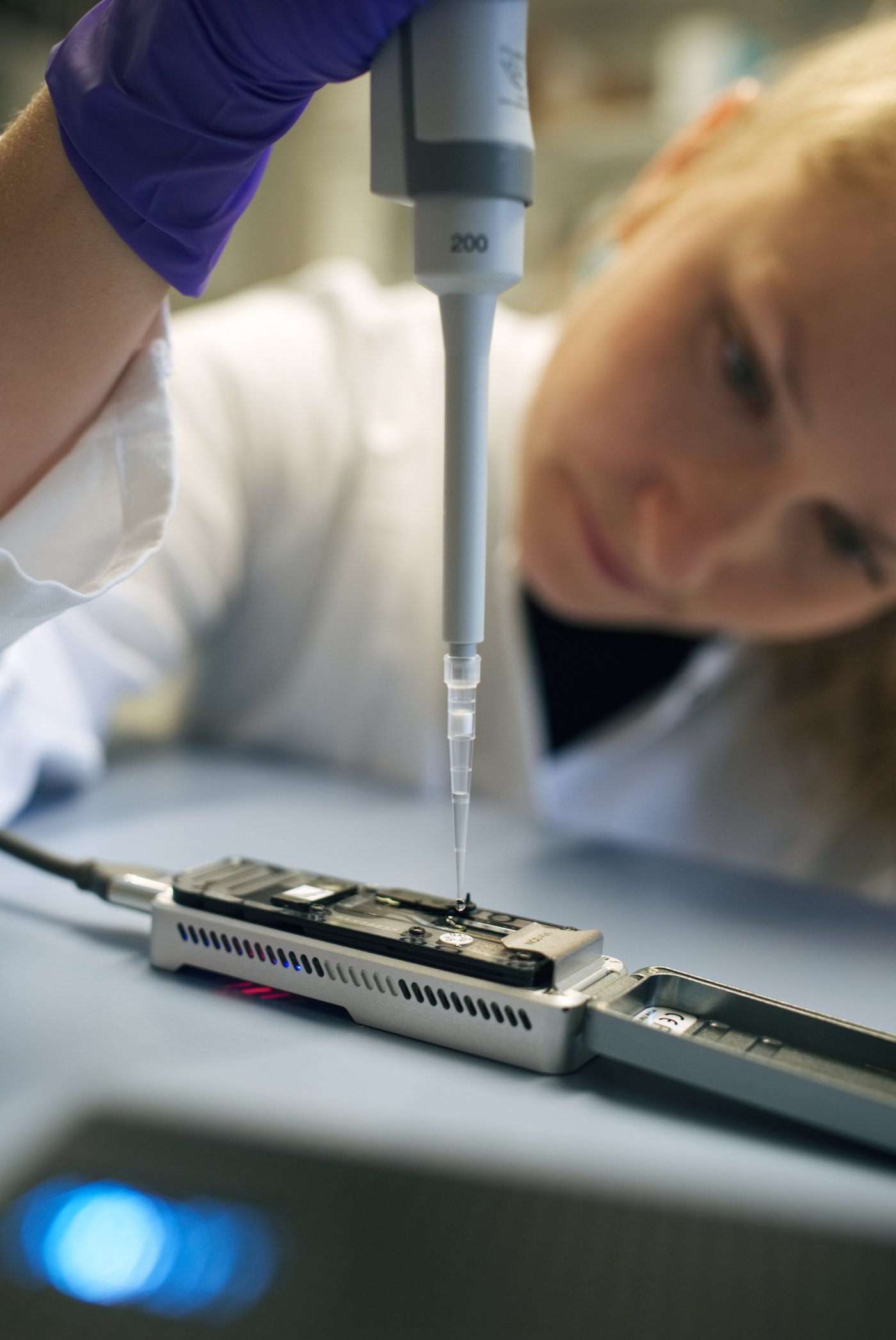Detect diseases
Who is infected with which pathogen?
Highly-specific and sensitive next-generation diagnostics
Reliable diagnosis of infections is a prerequisite for high-quality clinical and epidemiological studies and plays a key role in combating and eliminating poverty-related and neglected diseases. The BNITM offers an extraordinarily broad range of diagnostics for tropical infections that is unique in Germany. As the National Reference Centre for Tropical Infectious Agents and WHO (World Health Organisation) Collaborating Centre (WHO CC) for Arbovirus and Hemorrhagic Fever Reference and Research, the Institute will continue to focus on the development of improved diagnostics. In addition, the BNITM will continue to provide ISO-accredited, high-quality tests for direct and indirect pathogen detection.

Our goal is to further expand the importance of the BNITM as an internationally sought-after reference centre for the diagnosis of pathogens relevant to tropical medicine and also those that are newly emerging. To this end, additional reference activities will be established at the BNITM, such as a WHO Collaborating Centre for Malaria Reference and Research. In addition, the Institute plans to develop field-ready rapid tests for tropical diseases in order to improve diagnostics and research in the affected countries. New diagnostics for infectious diseases, in particular point-of-care tests for resource-poor regions, are to be evaluated in clinical studies. At the same time, the BNITM will establish new round robin tests, some of which will be digital, in order to further improve the internal and external quality control of diagnostic laboratories for tropical pathogens.
Especially in the recent past, epidemics have shown that diagnostic tests for new pathogens must be available in the shortest possible time. The BNITM therefore plans to create a modular system that will enable the development of new diagnostics for several pathogens at the same time in the future. In addition, in close cooperation between clinical research, epidemiology and diagnostics, a comprehensive biobank with very well-characterised reference samples will be created.
Contact
- Dr Anneke Novak-Funk
- Head of Science Management
- phone: +49 40 285380-266
- email: novak-funk@bnitm.de
Downloads
- Scientific report 2021-2022 ( PDF 10 MB )
- BNITM Flyer ( PDF 5 MB )
- Organization Chart BNITM ( PDF 2 MB )
- BNITM Strategy 2025 ( PDF 22 MB )







